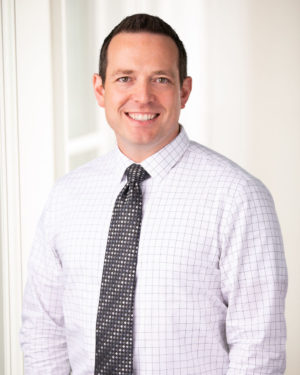Tryon Medical Partners is currently seeking participants ages 60 and older for a clinical trial to find a vaccine for RSV. Tryon’s Clinical Director Dr. Tina Kennelly joined WBTV’s QC@3 Tuesday, Dec. 28, 2021, to explain RSV, how clinical trials work and how to learn more.
In the midst of flu season and enduring a long COVID-19 pandemic, you may feel like you know a lot about the respiratory viruses that threaten our health. However, patients tend to be far less familiar with RSV and there isn’t a vaccine for this virus. At least not yet.
Dr. Michael McCartney of Tryon Medical Partners often fields questions from worried parents when an RSV diagnosis is made since it’s a lesser-known illness. But RSV (respiratory syncytial virus) is extremely common.
“RSV is a bit of a scary diagnosis because many people have never heard this term before, but most kids by the age of two have already been infected by it,” Dr. McCartney says.
It can also affect older adults with 177,000 hospitalizations and 14,000 deaths annually in the United States according to the Centers for Disease Control and Prevention (CDC).
While most people fare just fine, Dr. McCartney and his Tryon colleagues are hoping to decrease the dangerous statistics for more at-risk patients by participating in a clinical research trial for RSV. The study, in partnership with Javara, is for adults ages 60 or older in good health. Tryon is currently enrolling participants from the Charlotte region in this ground-breaking trial. Those who are interested can reach out by calling 704-610-6295 or emailing [email protected].
Similar to COVID-19 but in a different family of viruses, RSV creates an acute respiratory illness that infects the respiratory lining. In children, it often presents as a lower respiratory infection of the chest, lungs and bronchioles (air passages that travel from the windpipe to the lungs). This means children typically have wheezing and shortness of breath, along with fever and cough.
When people are reinfected later in life, it tends to be more of an upper respiratory infection, Dr. McCartney says, with a runny nose, cough and nasal congestion.
If you have symptoms, reach out to your primary care provider who can help you understand them and develop a treatment plan.
“Most of the time, RSV is managed symptomatically by controlling fever, staying hydrated and letting the virus run its course,” Dr. McCartney says. “Time is our best treatment. For children, we reassure parents and talk through red flags of worsening respiratory symptoms, knowing they’re not likely to happen and that most patients will do well in time.”
Much like flu, RSV is a seasonal illness that ramps up in the fall and slows down in late winter and early spring. Similar to last year’s flu season, RSV infection rates were lower as mitigating measures for COVID-19 also protect against flu and RSV.
“The ways to protect your family against RSV are going to be old hat for many people right now,” Dr. McCartney says.
Practice good hygiene by washing your hands often and refrain from touching your face, mouth and eyes. Stay home from work and keep children out of school when they are sick, including distancing from ill family members.
The very young are at high risk for a dangerous case of RSV, including preterm babies, young infants and children who are immunocompromised or have underlying lung conditions. Older adults are also at risk, including those with chronic heart or lung disease or decreased immunity.
Even though research for an RSV vaccine is underway by medical experts like the ones at Tryon, a vaccine is not readily available yet. Still, Dr. McCartney recommends being up-to-date on all other vaccines to reduce your overall risk of complications.
Having a relationship with a trusted primary care physician means you have an expert in your corner anytime sickness or questions arise. These experts work to keep you well and serve as the linchpin of your healthcare team by helping you develop screening plans and offering recommendations for specialists as needed. Find your primary care provider at Tryon, where our independent practice puts the focus where it belongs, on you, the patient.

